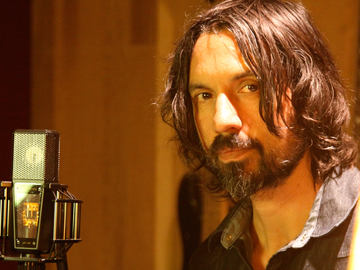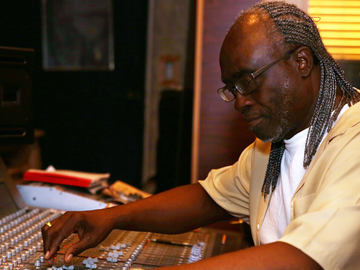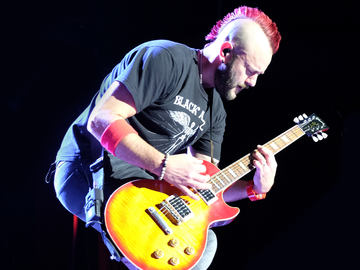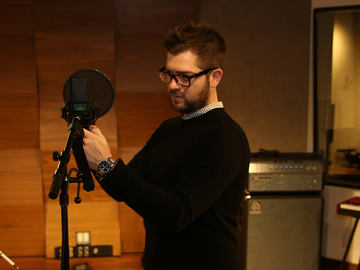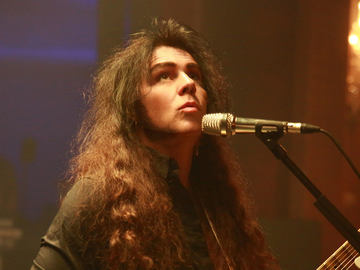Bryant Siono
"For pop vocals, I believe the LCT 940 is THE ONE."
![Bryant Siono uses the LCT 940 valve microphone to record vocals and guitar [Photo © Jeremy Moreno]](https://d2pucgucjvdva3.cloudfront.net/sites/default/files/styles/wide_cover_preview/public/endorsers/banners/BryantSiono2560x1024.jpg)
Bryant Siono is a bassist, producer, musical director, and engineer. Over the course of his brilliant career so far, Bryant’s collaborated with a wide variety of musicians including Frank McComb, Jonathan Butler, Prince, Chris Brown, Britney Spears, and many others. He spent four years performing with the Backstreet Boys, and since 2011, Bryant has served as musical director for music icon Jennifer Lopez.
[LEWITT] Tell us about the microphones you’re using and what you like about them…
[Bryant Siono] I have a wide collection of microphones in the studio. I use a number of LEWITT microphones, and I use them a lot – on almost every instrument. They’re constant, faithful companions on my drums. I use the LCT 240’s on my toms, which has been a game changer for me. I’ve tried all the industry standards, and the LCT 240 beats them all – every time! It always gives me that record-ready tone that already sounds mixed. On overheads, I’m using the LCT 340’s in x/y position, and they sound very smooth without losing the fullness of the cymbals and the entire drum kit.
On vocals, I’m using the LCT 940, and it’s killer! You know, for pop vocals you have to use a lot of compression and EQ, and the LCT 940 takes it really well and sounds crunchy with a lot of presence. I’ve also used the LCT 940 set to 50% FET and 50% tube to capture guitar amps, and that sounds amazing, too. It gets my job done quicker, because the sound is just there immediately. So I really enjoy working with this mic.
[LEWITT] What have you recorded most recently with your LCT 940?
[Bryant Siono] You can check out the LCT 940 on Jabin Chavez’s new EP So Good. All the vocals were recorded with the LCT 940, and all the electric guitars were recorded with a regular dynamic mic in combination with the LCT 940. Mateus Asato played the guitar on that record, and he was blown away by the LCT 940’s tone. It was great to have a world-renowned guitar player like Mateus Asato – I mean, to me, he’s one of the top guitar players of our time, and his tone is so important to him – come into the studio and say: “Hey dude, this sounds like it’s ready … you don’t have to mix it … it sounds amazing.” And that’s what LEWITT has been doing for me. In the studio, the mic allows me to work quicker and to produce faster, because for me, tone is so important, and this microphone gives me the tone I need – right out of the gate. Sometimes I’ll maybe use some slight EQ, but nothing crazy – it’s already there. I’m really happy with these mics, and I’m using them all over my studio. My studio looks like a LEWITT showroom. (laughs)
[LEWITT] You mentioned that Mateus Asato really enjoyed the LCT 940’s sound on his guitar amp. Have other musicians also commented on this microphone’s sound?
[Bryant Siono] Everybody loves this mic! It’s an eye catcher, for sure, but it also performs very well. Like I said before, it’s smooth, it has great presence without being harsh on the highs, and it gets that crunchy pop vocal when you compress it – that modern sound. For pop vocals, I believe the LCT 940 is THE ONE.
[LEWITT] Please tell us something about your recording chain…
[Bryant Siono] I’m a producer, but I’m also an engineer; so as a producer, I really get into the engineering side of things and like to geek out on that stuff. You know, there are engineers that went to school for engineering who aren’t musicians or producers – they’re just great engineers! And then there are engineers like myself – I’d say people like Dr. Dre, DJ Quick, or Greg Walls – and these guys are producers, but they’re also real-deal engineers. And I think our process works a certain way: when I’m recording, I generally intend to get it as close to the final sound as possible … like, I commit the compression, the EQ, all that stuff, ’cause I know what I want to hear as a producer. Whereas regular engineers just want to get as much level as they can, so that whoever mixes it has an easy time doing their thing. But I already know what I want to hear when I start recording, and most of the time, I’m also the one who’ll be mixing it, instead of wasting time with another mixing engineer who I’d have to tell about the sound I hear in my head. So when I’m recording vocals, too, I aim to go from the mic to a preamp to an EQ to a compressor, and then I go in and put it through a bus in my DAW. I fine-tune my chain to the point where it’s literally almost how it’s going to end up on the record, and then the vocalist records like that – because I feel that when it sounds almost record-ready, the vocalist will perform better. And every time when the vocalist starts, he or she is like “Oh my god, I never heard my voice like this! What mic is it?”
Now I’ve got a chain going on, of course, but it all starts with the mic, and I’ve used so many different mics that I’ve learned that different mics take EQ and compression differently: some mics don’t take EQ very well, but LEWITT’s just awesome – like I said before, record-ready. You can use the LCT 940 for whatever you want, and if it’s the only mic you have, you can make it work for any instrument, any application. It’s a really sexy, good-sounding mic!
